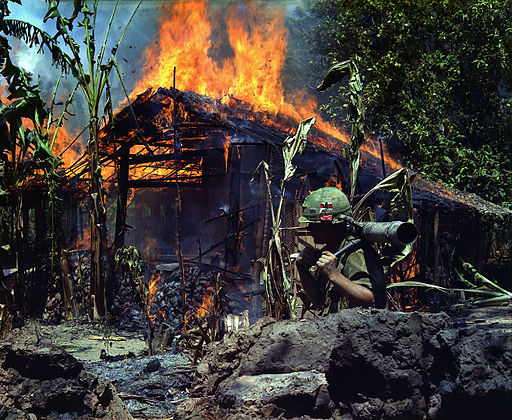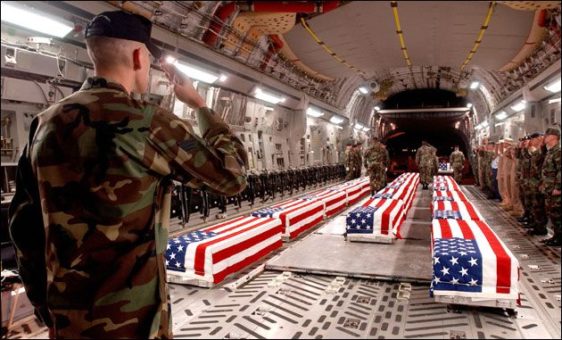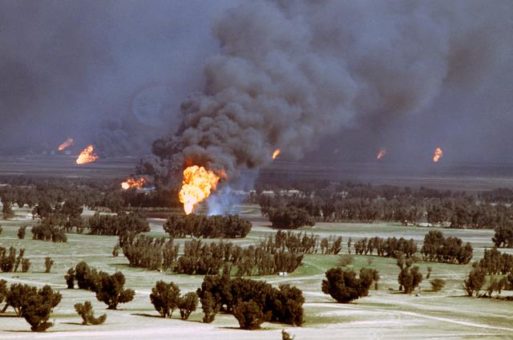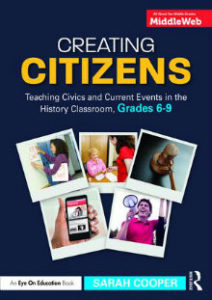Six Takeaways from a History Podcast Project
A MiddleWeb Blog

After grading the podcasts, reading student compliments on each other’s work, and conducting an anonymous survey on what these 8th graders thought, I’m generally satisfied with the project. The students were too, with 85% saying I should definitely assign this podcast again and 15% saying maybe.
Here are six takeaways that have helped me imagine not simply how to improve this assignment in future iterations, but also how to grow further as a teacher with online learning.
1. Frontloading historical content has its place – sometimes.
This project brought forward a question I’ve always wondered about but have never really examined: How much historical background should students have before embarking on a self-directed, research-based project?
The answer, I think, is that it varies. Sometimes I want students to know enough from the outset, as with a Civil War unit culminating in the film Glory, that they become relative experts. In that case, I want them to internalize the timeline of the war and the intricacies of the relationship between North and South enough to comprehend the film’s references.
For this podcast project, though, I was mixed about whether we should have started with more historical context. Some topics, such as 9/11, were easily accessible because of their relative immediacy and straightforward narratives. Other conflicts, such as the Vietnam War, were harder to understand without prior exposure. As one student suggested afterward in an anonymous survey, “Maybe make it about something that we specifically studied as a group.”

National Archives/Public domain. My Tho, Vietnam. A Viet Cong base camp being burned down. In the foreground is Private First Class Raymond Rumpa.
Regardless, what I realized midway through is that I needed to read and comment on each group’s script in Google Docs, then ask students for revisions to ensure historical accuracy.
That said, many students thrived in discovering information for themselves. As one wrote in the survey: “I liked having a project to look forward to when I came to class and it felt like I was teaching myself about the wars which was really nice.”
Others said: “I feel that I remember the info better because I had to work to make it appealing to others to listen to” and, more specifically, “I have always personally been interested in WW1 and the Mustard Gas so I liked finding more details on that.”
2. Interviews are powerful.
Interviews were not required, but the audio sparkled when groups included a recording from a relative. A few students asked parents what they remembered and where they were on 9/11. In addition, one student interviewed grandparents about being in Korea at the time of the Korean War, another talked with a grandfather about living in a group home during the Great Depression, and still another spoke with family members about a relative’s death in the Iraq War.

Dover Air Force Base/Public domain. Released through FOI request.
My breath caught listening to these accounts, and the students echoed this reaction. In feedback for one group, one student said: “I really liked how they included an interview of someone who lived through the time of 9/11. The person they interviewed was an outsider and watched what was going on during the attack and it really put into perspective of how it would feel like to be around when the attacks happened.” Another noted that an interview was “very powerful and did a lot for the meaning of the podcast.”
In the future, I would like to require or encourage an interview, perhaps shifting the project topic slightly so that everyone would be able to find someone with whom to record a conversation.
3. Primary sources drive the narrative.
All the groups put together an interesting and professional-sounding project. The truly memorable podcasts, however, thrust primary sources front and center. Right now, without looking back at the emails I sent each group about their work, I can clearly remember audio images of doctors treating soldiers at Antietam during the Civil War, the contents of a soldier’s backpack during World War I and the oil fields burning in Kuwait during the Persian Gulf War.

Oil fires set in Kuwait during the Gulf War by Iraqi forces. United States Army/Public domain
Even more so, the best podcasts often hooked us with a primary source. Next time I would emphasize from the beginning that primary sources are the “stars” of the podcast – and that secondary historical context needs to wrap around these sources, not overwhelm them.
4. Music makes a difference.
Most groups ended up slotting in copyright-free music that they found online for intros, endings and sometimes transitions. It was astonishing to all of us, I think, how much of a difference music made.
In one class’s Zoom discussion about the final podcasts, the chat lit up with comments like this one: “Background music is nice because it breaks up all of the talking and makes it more interesting.” One student wrote in her compliments about another group’s podcast that “they added music, which made the podcast more amusing to listen to. I like how the music changes throughout the podcast.”
5. When online, keep a particular eye on group work.
When we’re working on a project mostly in the physical classroom, it’s relatively easy to determine whether each person is upholding their fair share of the work. Online, it’s much harder, even though I was meeting regularly with the groups in Zoom breakouts.
A couple of members of one group had to request a private meeting with me one day to help get another group member back on track, and one group turned in their project late because one person had temporarily dropped the ball.
It’s been years since I’ve asked students to fill out a form at the end of a project that estimates the percentage of work done by each person in the group. However, for future online group work, I think such a form might help me be as fair as possible.
6. Grading while walking around is a pleasure.
With most of the podcasts, I ended up listening while cooking, cleaning the house or taking a walk. So that I could dictate feedback I wanted to send later, I kept open a Notes file on my phone. In the future, I might even give fully oral feedback in a Voice Memo.
Being untethered from a computer for at least part of the grading process made me feel freer and more attuned to students’ voices.
The Next Time We Do a Podcast Project
This project has given me all kinds of inspiration. I was uplifted by students’ desire to puzzle out the past and create thoughtful connections to the present, as they worked through the project’s guidelines.
Next year I’m dreaming about more such assignments, such as asking students to interview a family member for StoryCorps Connect or encouraging them to participate in the New York Times Annual Student Podcast contest or the NPR Student Podcast Challenge (deadlines for both likely in Spring 2021).
I could also expand the project by giving students room to choose a conflict that’s not a war, or to incorporate a literary or film reference about their historical moment.
They could also even more explicitly link their conflict to what we are going through today. One group who did this effectively ended their podcast on a poignant note, mentioning, for instance, “a country filled with dreamers” that can overcome the “racism and xenophobia” facing us today. They asserted: “We can look forward and do better.”
After hearing everyone’s voices in my ear buds, as they strived to understand the past to better process the present, I couldn’t agree more.

Edutopia has republished portions of this article.































Sarah, I’m so happy to hear that this turned out so well! It sounds like a fantastic project. I just clicked on your guidelines link above to see the assignment. Thanks for sharing this great idea with us.
Lauren, thanks so much for this feedback! The project was a nice way to wrap up the year, connecting students and keeping them engaged.
I was just wondering how this would go in an area where there is a very low income and loss of jobs student base and how this could be successful with my 7th or 8th grade students?
Hi William, it is difficult when students are facing many life challenges and also perhaps don’t have equitable access to technology. I found that the eighth graders were really interested, though, in reading stories of hardships from other times. Maybe that’s a way in for you and your students?
Hi Sarah, thank you for sharing such a wonderful and engaging lesson! I also teach 8th grade social studies, and could see this being a great lesson for distance learning. Do you see this staying a group project, or would you recommend students creating their own individual podcasts? It’s hard to know how well students will work as groups being home.
Hi Mariah, thank you for your kind comments! I liked the social interaction that the podcasts gave groups of students, especially because we built a lot of time during class for them to work. Most groups worked well together, but a couple had issues with some students shouldering more of the tasks. Next time I would probably keep it as a group project, but I would check in more frequently about who was doing what. I also might send out a form midway through that asks each student, confidentially, who’s doing how much of the work and whether there’s something I need to address. If you try this project individually or in groups, please let me know how it goes!